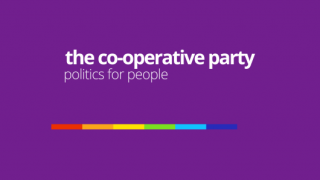
UNA-UK has written to all major UK political parties, asking them for a statement on the United Nations. By shedding light on the approaches taken by different parties we hope to contribute to an informed national conversation on foreign policy, and help raise awareness of the ways in which the international system delivers benefits to British citizens.
Read more on this initiative and read other parties' statements
The Co-operative Party's approach to the United Nations
The Co-operative Party is the political party of the UK Co-operative Movement, we seek to inject co-operative values and principles in to British politics. We are a party of passionate co-operators who rightly feel themselves as a part of a global community.
The global co-operative movement is made of some 1 billion individuals strong across the world. Our global movement is passionate about using our different way of doing business to improve peoples’ lives. The international co-operative movement is governed by the International Co-operative Alliance (ICA). The Co-operative Party is proud that at the United Nations, the ICA participates in high-level discussions of relevance to co-operatives through its consultative status with the United Nations Economic and Social Council (ECOSOC), which it has had since 1946 and was the first non-governmental organisation to do so.
The Co-operative Party believes it is hugely important that the ICA also has individual partnership agreements with the Food and Agriculture Organization of the United Nations (FAO), the International Labour Organization (ILO) and the International Trade Centre, and participates in the UN Inter-Agency Task Force on Social and Solidarity Economy. The Party understands that this international solidarity is a critical importance.
The Co-operative Party believes that UN Sustainable Development Goal’s provide an invaluable framework for international co-operation and development. The Co-operative Party supports the ICA’s belief that co-operatives have an important role to play in advancing these goals for example:
- Poverty eradication and zero hunger: Co-operatives allow people to help themselves by creating their own economic opportunities.
- Food security: Agriculture co-operatives help their smallholder producer-members access inputs, infrastructure, markets, better prices, training and technologies, through the power of the collective.
- Gender equality: With open and voluntary membership as one their founding principles, co-operatives help women access resources and opportunities by expanding their participation in local and national economies.
- Decent work and economic growth: Being focused on human needs, co-operatives have proven to be resilient, and even recorded growth, in times of crisis. They are also a source of decent employment for many people around the world and increase inclusion of marginalized groups, such as youth and indigenous people, in the global workforce.
- Combating climate change: Co-operative enterprises have a unique member-owned model that allows them to make long-term commitments to fighting against climate change and its impacts. Co-operatives put people at the heart of their action, which fosters the buy-in for the personal sacrifices that climate change will require. This results in sustainable natural resource management and active engagement in sustainable energy options.’
The Co-operative Party are delighted to continue to support the work of the UN and the ICAs work with it.






